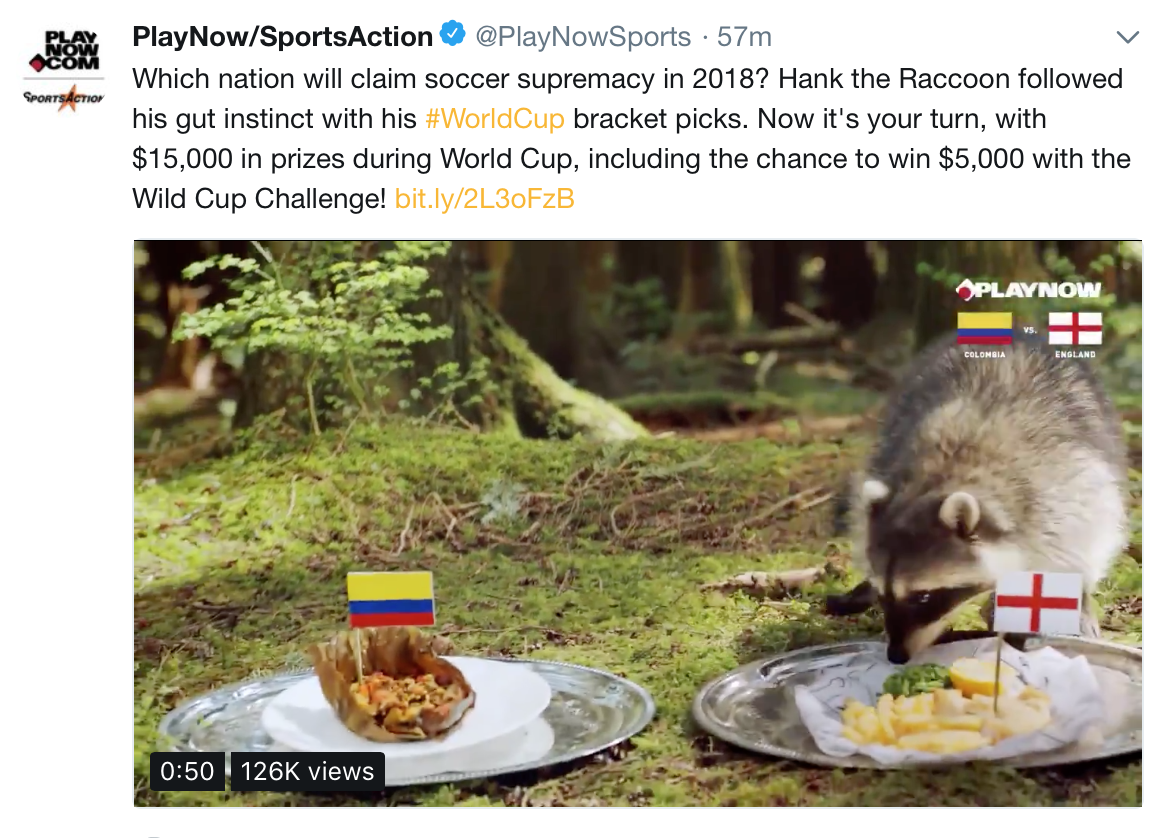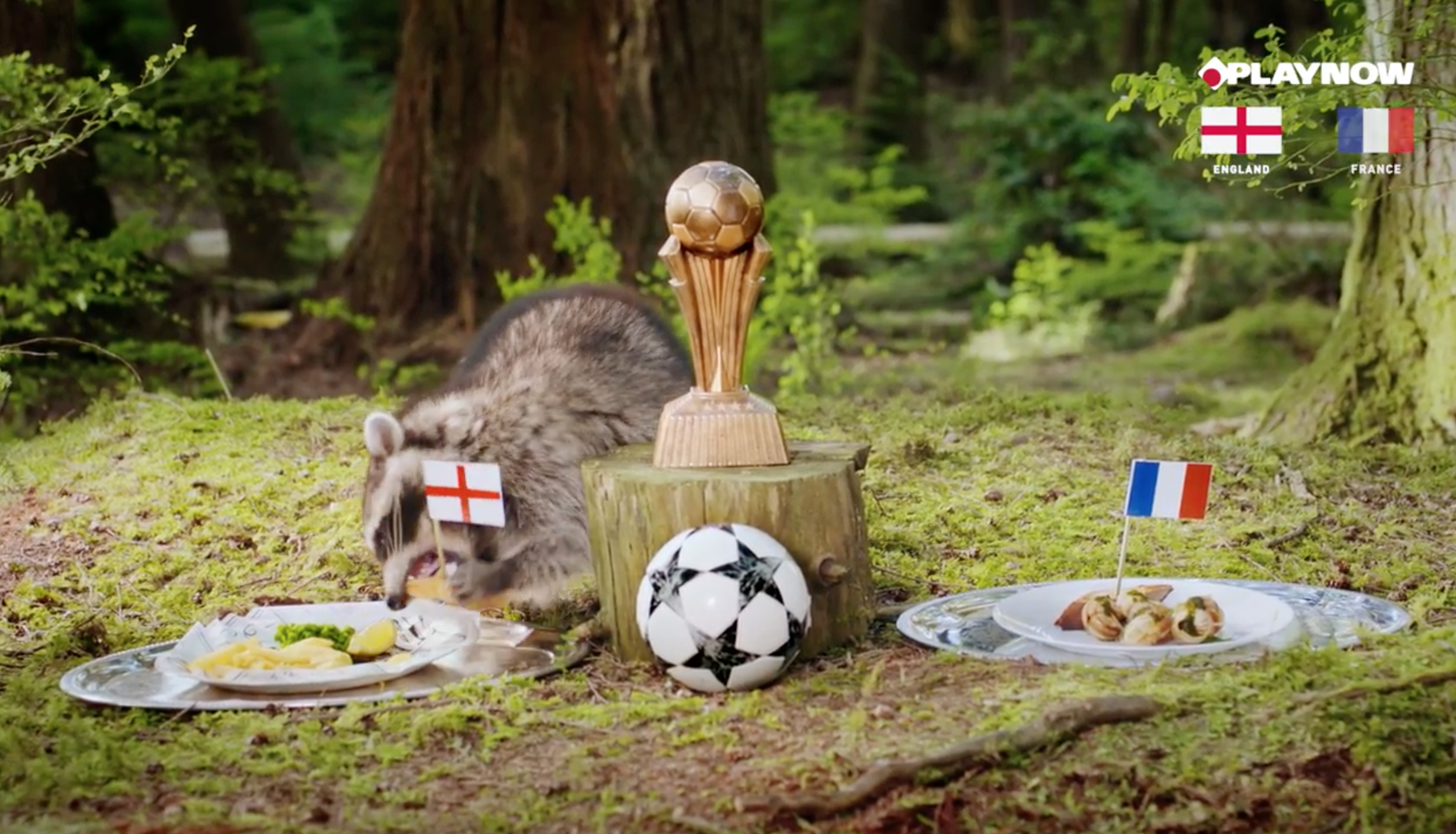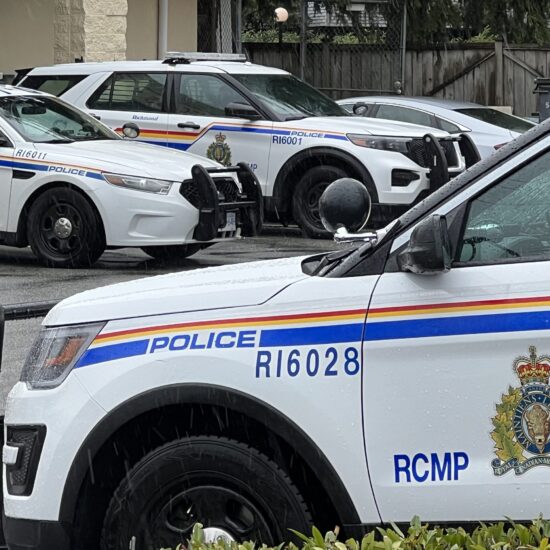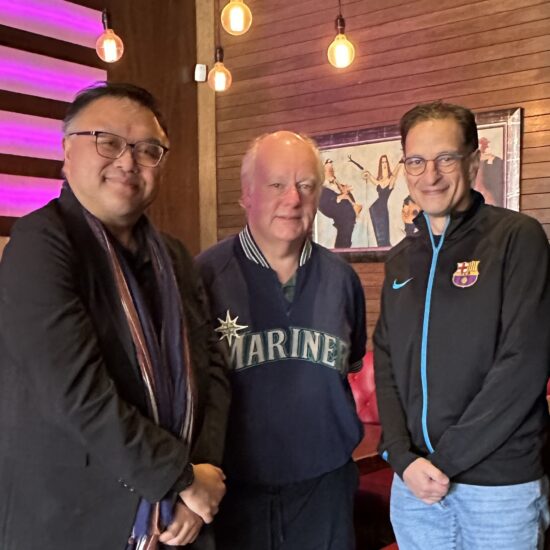
Bob Mackin
B.C. Lottery Corporation’s new ad campaign that uses a raccoon to promote soccer betting is inappropriate, according to an official with the B.C. Society for the Prevention of Cruelty to Animals.
In a one-minute video for the PlayNow Wild Cup Challenge, Hank the Raccoon prowls a forest and finds opposing national dishes under national flags, such as fish and chips for England and tamales for Colombia.

BCLC’s Hank the Raccoon eating fish and chips in an ad that the SPCA calls inappropriate (BCLC)
“We let Hank the Raccoon pick his World Cup bracket based on which country’s food he likes best,” reads the website. “Now it’s your turn.”
“They think it’s probably a fun gimmick to have a raccoon picking food,” B.C. SPCA chief scientific officer Dr. Sara Dubois told theBreaker. “They’re encouraging feeding a wild animal, which is completely contrary to all the messaging that ourselves, and many other organizations, put out there.”
Indeed, the SPCA website warns against feeding wild animals, such as raccoons, because they can lose their fear of humans and pose a risk to humans, pets and themselves. “Feeding wildlife is also responsible for human-wildlife conflicts in many B.C. communities,” according to the SPCA. “Animals adapt to an artificial abundance of food, but when food becomes scarce, as in winter or when people stop feeding them, animals face starvation.”
BCLC refused to answer questions about the ethics of running an ad that is based on humans feeding a wild animal.
BCLC spokeswoman Anjee Gill called Hank “a rescued, domesticated raccoon who lives with his family in the Fraser Valley and was introduced to BCLC through its marketing agency for the Wild Cup Challenge, 123 West Communications.”
Gill said specialized animal trainers safely handled Hank during the Maple Ridge shoot and they followed American Humane Society (AHA) Guidelines for the Safe Use of Animals in Filmed Media for the $250,000 ad campaign.
Since 2008, the B.C. SPCA has opposed the keeping of wild animals (species that have not been domesticated) for use in the film and TV industry. Dubois said the SPCA does not recognize the AHA program because it only covers animals on set, not where they are housed or trained.
“It’s a nice-to-have [credit], I’m sure, for movie companies and TV, but it’s not something that would meet our standard,” Dubois said.
A 2013 investigation by the Hollywood Reporter found that AHA awarded the “no animals were harmed” credit to film and TV show productions on which animals had been injured. “It justifies this on the grounds that the animals weren’t intentionally harmed or the incident occurred while cameras weren’t rolling,” said the story.
The office of NDP Environment Minister George Heyman did not respond to theBreaker. Liam Butler, a spokesman for Attorney General David Eby, said the government does not routinely review or approve BCLC ad campaigns.
The B.C. government’s own Environmental Protection and Sustainability website clearly states: “Do not put food out for raccoons or other wildlife and never leave pet food where wildlife can get it.”
BCLC and its ad agency were inspired by zoo and aquarium animals that became social media stars for picking winners in previous World Cups.
Paul the Octopus at Germany’s Sea Life Centre famously went 12-for-14 in picks for the 2010 World Cup, including correctly predicting Spain as the winner. That spawned a menagerie of imitators in 2014, such as Flopsy the Kangaroo in Australia Zoo, Big Head the Turtle in a Brazilian turtle sanctuary, and bears in Sichuan, China’s Giant Panda Protection and Research Centre.
Support theBreaker.news for as low as $2 a month on Patreon. Find out how. Click here.











